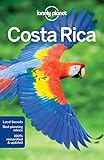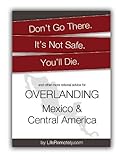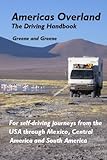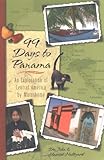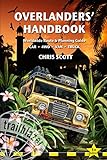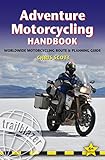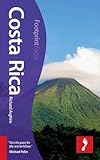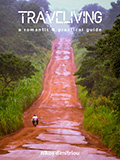Difference between revisions of "Costa Rica"
m |
m |
||
| Line 8: | Line 8: | ||
'''Correct as of: <span style="color:red">October 2014</span>''' | '''Correct as of: <span style="color:red">October 2014</span>''' | ||
| − | ==Required Paperwork== | + | ==Required Paperwork== |
* Passport of registered owner (original and 1 copy). | * Passport of registered owner (original and 1 copy). | ||
* [[Drivers license]] of registered owner (original and 1 copy). | * [[Drivers license]] of registered owner (original and 1 copy). | ||
Revision as of 11:35, 27 September 2014
Pan American Highway > Costa Rica
Currency to display:
Contents
- 1 Visiting Costa Rica
- 2 Entering Costa Rica with a Car or Motorbike
- 3 Driving in Costa Rica
- 4 Gas and Diesel price in Costa Rica
- 5 Safety and Security Considerations
- 6 Camping in Costa Rica
- 7 Navigation
- 8 Special Overland Travel interests
- 9 Vehicle Maintenance
- 10 Buy or sell a car or motorbike in Costa Rica
- 11 References
- 12 Helpful External links
Visiting Costa Rica
With easy borders, amazing beaches and wildlife and plenty of ex-pats, Costa Rica is a favorite for all travelers.
Entering Costa Rica with a Car or Motorbike
Correct as of: October 2014
Required Paperwork
- Passport of registered owner (original and 1 copy).
- Drivers license of registered owner (original and 1 copy).
- Vehicle registration (original and 1 copy).
- Vehicle insurance (original and 1 copy). (see below)
Process at border
(To check if you need a travel Visa for Costa Rica, application instructions and fees see: Costa Rica Visa online application at VisaHQ.com)
- As you drive over the border you will pass through fumigation (free) and be given a receipt.
- The owner of the vehicle gains entry at immigration (migración), including a stamp in their Passport. A copy of this new stamp is required.
- Insurance for the vehicle must be purchased. (see below)
- The owner must show the new Passport stamp (including a copy), Drivers license, the original Vehicle registration, vehicle insurance and the fumigation reciept to customs (aduana).
- The owner is issued a temporary import permit for the vehicle.
NOTE: You may encounter locals offering to help you with paperwork to get across the border. See Border Crossing Helpers for advice.
Cost of entry
Free.
Permitted length of stay
90 days.
Not possible to extend the stay of the vehicle, and also be aware that you wont be allowed back in the country with the vehicle until the vehicle has been outside the country for 90 days, so going out for a day is out of the question.
Storing a vehicle and temporarily leaving the country
You can leave your vehicle in a bonded storage in Costa Rica to freeze the temporary importation papers, you can do it for as long as you want. Prices range from $3.00 USD to $8.00 USD per day depending on facilities and if it is indoor parking or outdoor. By mindfull that during rainy season you might want to leave it indoors, during the dry season a tarp is recomended to keep some of the sun out. Once you drive the vehicle into a bonded storage facility they freeze the permit for you, once you want to pick it up you have to go to customs first (there is an office by the airport but it is not inside the airport), get the permit reactivated (you will need proof of identity and to have a valid insurance) once the permit is active again you can go and pick up the vehicle.
There is an excellent writeup, along with Spanish translations for some important terminology on this site: http://headsouth.travellerspoint.com/19/ Followup article about steps to pick up are here: http://headsouth.travellerspoint.com/24/
Another good writeup, with GPS coordinates to specific places to park and optain the correct paperwork: http://30forthirty.org/2013/04/07/long-term-costa-rica-parking/
Exiting with a vehicle
- The registered owner is stamped out of Costa Rica at immigration.
- The registered owner presents the temporary import paper to customs, where it is cancelled.
- VERY IMPORTANT, If you are planing to get back into Costa Rica make a photocopy of the temporary importation paper and get it stamped by the official, if you dont do that they will hassle you when reentering.
- Costa Rica has a $7.00 USD exit fee for people. Some people have been forced to pay on credit card which has then been charged multiple times. Say you don't have a credit card and pay with cash.
Driving in Costa Rica
Insurance requirements
Insurance is mandatory in Costa Rica and you will be forced to buy it at the border before you are allowed to enter. There are always agents at the border to buy from.
Cost of insurance
$35.00 USD for 3 months for a 4x4.
Where to purchase insurance
Right at the border. The customs guys will tell you exactly where to go.
Driving license
Technically an International Driving Permit is required.
In reality, showing a license from anywhere in the world seems to be good enough.
Driving side of road
Right.
Right hand drive vehicles are permitted without problem.
One person had a problem in early 2014, which has been followed up with this: below is the response from Kenneth Waugh, GM of Land Rover in Costa Rica and President of the British Costa Rican Chamber of Commerce. The El Salvador LR Club will gladly assist any RHD overlander with a permit to drive through El Salvador, just write us with enough notice.
"I have confirmed that there is no restriction for RHD vehicles to be accepted temporarily and to be driven within the tourism access time (less than 90 days) on Costa Rican territory. I am requesting the Ministry of Transportation to issue the written statement and also requesting the National Insurance Company to issue the written clarification that there is no restriction to insure this vehicles during their passage. As well I am doing the written question to AIVEMA as an extra assurance that this vehicles are only temporary."
So RHD vehicles should be fine.
Mandatory items in vehicle
None.
Roads
General Road quality
Roads in Costa Rica are generally of good quality, except in some of the smaller towns where the pavement is cracked and broken. Lesser roads are gravel and vary greatly from very good, to extremely rutted and dusty to mud pits. Any gravel road on either coast will be horrendous in the rainy season.
Road signs
Road signs are mostly common and clear.
Toll Roads
Hwy 27 is a toll road, goes from Orotina to Limon.
Free option is Hwy 1 but it takes twice as much time and probably will spend the booth money on gas.
Bribery in Costa Rica
Police bribery is not common in Costa Rica, but it certainly does happen. Be careful, if you bribe the wrong one you risk jail!
See the bribery tips page for advice.
Checkpoints
Police checkpoints are not common in Costa Rica, though you may encounter them. You'll be asked to show your Passport, Vehicle registration, drivers license, vehicle insurance and the temporary import permit you were issued at the border. For the most part, Police will not bother foreigners too much.
Traveling with pets
According to travelers in 2012, you need: [1]
Travelers in 2013 wrote this when traveling from Nicaragua to Costa Rica: [2]
- A Health Certificate for the animal in Spanish (updated at least every four months)
- A vaccination record (the European Pet Passport works well)
You might not be asked for either one, but you should have them ready.
Gas and Diesel price in Costa Rica
Last updated: June 2012 (Diesel December 2013)
Currency and unit to display:
| Gasoline Grade | Price |
|---|---|
| Regular | ?? |
| Super (90) | ?? |
| Premium (95) | $5.66 USD per Gallon (US) |
| Ultra (97) | ?? |
| Normal Diesel | $1.17 USD per Liter |
| Diesel (low sulfur) | ?? |
Gas and Diesel Availability / Frequency
Gasoline shortages in Costa Rica are not a problem.
Typically gas stations are not more than 100 - 200km apart.
Gas and Diesel Quality
Accepted to be good quality.
Sulfur content is low.
Safety and Security Considerations
Driving at night
Driving at night is not considered a huge problem in Costa Rica, though it's not recommended due to safety concerns and road hazards that can not be seen in the dark.
Vehicle parking
Parking vehicles on the street in smaller towns during the day is typically OK. Find a secure parking lot in big cities and at night. Do not leave personal belongings in the car to avoid theft. Secure parking will be around $20.00 USD per night.
Special driving considerations
None.
Security advisories and information
- Country Specific Information - U.S. Department of State
- Travel Reports and Warnings - Foreign Affairs and International Trade Canada
- Travel advice by country - Foreign and Commonwealth office (U.K.)
- Travel Advice for Costa Rica - Australian Department of Foreign Affairs and Trade
Camping in Costa Rica
Camping is popular in Costa Rica, both with backpackers and locals. Virtually all beachside towns have multiple sites to choose from for around $3.00 USD to $5.00 USD per person, per night.
Being far away from major roads is preferable for wild camping.
Camping guide books
No specific book exists, though the usual backpacker guide books mention a campground in virtually every town and city.
Drinking water
Tap water in most of Costa Rica is safe to drink. Every corner store sells 1 and 2 liter bottles, and 20 liter bottles can be bought at most large grocery stores if you don't feel safe drinking tap water. In very remote towns or small islands it is recommended to ask the locals if tap water is safe to drink.
Paper maps
Reise Know-How are amoung the best paper maps. Purchase paper maps before arriving in Costa Rica
GPS Maps of Costa Rica
- Open Street Map: Appears to have good coverage.[3]
- Garmin: Apparently no map of Costa Rica.
- TomTom: No map of Costa Rica. [4]
- Cenrut: Free Open Source GPS map of Central America. Coverage is occasionally better than OSM. [5]
GPS co-ordinates for camping, propane, gas, repairs, etc. in Costa Rica
- Places in Costa Rica - Camping Places & Sights in Costa Rica by Pawsontour
- Camping Sites: CostaRica - Detailed list of campsites and propane filling with description, directions and GPS co-ordinates. Some at hotels (lists facilities and price), some roadside and free.
- Central America Camping Locations - List of campsites, with basic directions and GPS co-ordinates. Mostly free sites.
- Camping Log 1: Central America - List of campsites, shopping, fuel, propane and border crossings with excellent descriptions and GPS co-ordinates.
- White Acorn camping log page - GPS co-ordinates and excellent description of campsites]
- Costa Rica Campgrounds and Hotels - Life Remotely - List of campgrounds and hostels with photos, GPS co-ordinates, descriptions and amenities from 2012]
Special Overland Travel interests
None.
Travel Guide Books
Vehicle Maintenance
Dealers
4x4s / Trucks
- Toyota Global Dealer Locator
- Land Rover International Dealer Locator
- Mercedes Benz International (select country on bottom right)
- Jeep International site locator
Motorbikes
Local Garages
Add known good mechanics here.
Buy or sell a car or motorbike in Costa Rica
Buy
Unknown.
Describe how a foreigner can buy a vehicle.
List any difficulties or limitations on where the vehicle can be driven.
Sell
Import taxes on a foreign vehicle are 79% of the assessed value of the vehicle, so it's unlikely anyone would import a vehicle into Costa Rica purely to sell it as a Costa Rican vehicle.
References
- ↑ Central American Borders and dogs
- ↑ Traveling with dogs from Canada to Argentina. Experiences and Infos.
- ↑ OpenStreetMap Costa Rica
- ↑ TomTom Map availability
- ↑ Cenrut Mapping Project
Helpful External links
- Costa Rica: Visa and Passport requirements | World Travel Guide
- Health Information for Travelers to Costa Rica - Center for Disease Control and Prevention
- Costa Rica travel guides at wikivoyage
- Costa Rica - Wikipedia, the free encyclopedia



